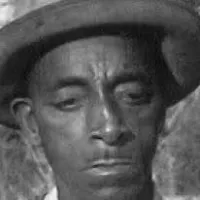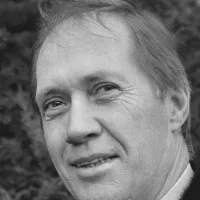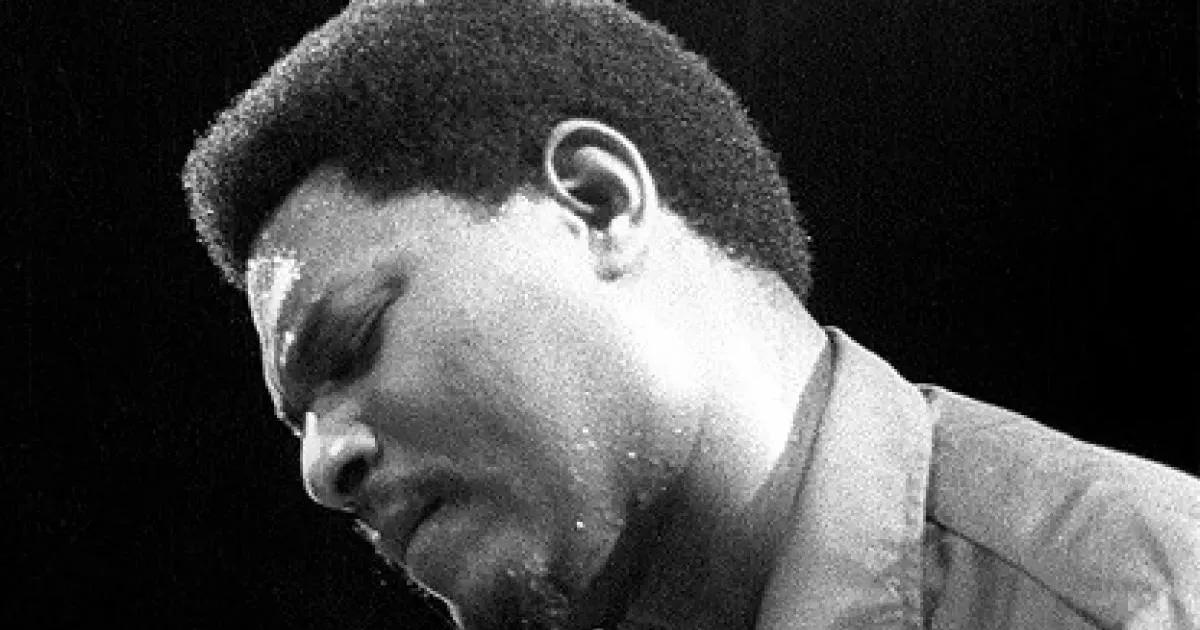McCoy Tyner was a highly influential American jazz pianist and composer, best known for his work with the John Coltrane Quartet and his subsequent solo career. His distinct style, characterized by modal playing and pentatonic scales, has been widely imitated and cemented his place as one of the most recognizable jazz pianists ever. A five-time Grammy Award winner and NEA Jazz Master, Tyner's contributions to jazz are undeniable and continue to inspire musicians today.
December 11, 1938: Birth of McCoy Tyner
McCoy Tyner was born on December 11, 1938.
January 10, 1958: "The Believer" Recording
On January 10, 1958, John Coltrane recorded Tyner's composition "The Believer".
May 1960: Tyner Joins Coltrane's Group
McCoy Tyner joined John Coltrane's group around the end of May 1960.
1960: Joins The Jazztet
In 1960, McCoy Tyner joined The Jazztet, led by Benny Golson and Art Farmer.
1960: Joins John Coltrane Quartet
In 1960, McCoy Tyner joined the John Coltrane Quartet, marking a pivotal moment in his career.
1961: Extensive Touring and Recording with Coltrane
Between 1961 and 1965, Tyner toured and recorded extensively with the John Coltrane Quartet, producing several classic jazz albums. One notable recording from this period is "My Favorite Things" (1961).
1962: Recording at Village Vanguard
In 1962, the John Coltrane Quartet, including Tyner, recorded "Live" at the Village Vanguard.
1963: Recording Solo Albums
McCoy Tyner began recording solo albums as a leader in late 1962 and the first half of 1963, including "Reaching Fourth."
1963: Recording "Ballads" and "John Coltrane and Johnny Hartman"
The John Coltrane Quartet recorded "Ballads" and "John Coltrane and Johnny Hartman" in 1963.
1964: "The Believer" Release
In 1964, "The Believer" was released as the title track of an album under Coltrane's name.
1964: Recording "Live at Birdland", "Crescent", and "A Love Supreme"
In 1964, the John Coltrane Quartet recorded several influential albums, including "Live at Birdland," "Crescent," and "A Love Supreme."
1964: Release of "Today and Tomorrow"
McCoy Tyner released the album "Today and Tomorrow" in 1964.
December 1965: Tyner Leaves Coltrane's Group
McCoy Tyner left John Coltrane's group in December 1965.
1965: End of Extensive Touring with Coltrane
In 1965, the period of extensive touring and recording with John Coltrane concluded.
1965: Departure from Coltrane's Group
McCoy Tyner left John Coltrane's group in 1965 due to musical differences.
1965: Departs John Coltrane Quartet
McCoy Tyner left the John Coltrane Quartet in 1965.
1965: Release of "McCoy Tyner Plays Ellington"
McCoy Tyner released the album "McCoy Tyner Plays Ellington" in 1965.
1966: Starts Career as Bandleader
McCoy Tyner began his career as a bandleader in 1966.
1967: Releases with Blue Note
In 1967, McCoy Tyner released several albums with Blue Note, including "The Real McCoy" and "Tender Moments."
1968: Releases "Time for Tyner" and "Expansions"
McCoy Tyner released "Time for Tyner" and "Expansions" in 1968.
1970: Final Blue Note Releases
McCoy Tyner's series of post-bop albums with Blue Note concluded in 1970 with the release of "Extensions."
1972: Releases "Sahara" and "Echoes of a Friend"
McCoy Tyner released "Sahara" and "Echoes of a Friend" in 1972.
1973: Releases "Enlightenment"
McCoy Tyner released "Enlightenment" in 1973.
1975: Releases "Trident"
McCoy Tyner released "Trident" in 1975, featuring harpsichord and celeste.
1976: Releases "Fly with the Wind"
McCoy Tyner released "Fly with the Wind" in 1976, featuring Hubert Laws, Billy Cobham, and a string orchestra.
1987: Grammy Award for "Blues for Coltrane: A Tribute to John Coltrane"
McCoy Tyner won a Grammy Award for "Blues for Coltrane: A Tribute to John Coltrane" in 1987.
1988: Releases "Revelations"
McCoy Tyner released the solo album "Revelations" in 1988.
1991: Releases "Soliloquy"
McCoy Tyner released the solo album "Soliloquy" in 1991.
1992: Grammy Award for "The Turning Point"
McCoy Tyner won a Grammy Award for "The Turning Point" in 1992.
1993: Grammy Award for "Journey"
McCoy Tyner won a Grammy Award for "Journey" in 1993.
1995: Grammy Award for "Infinity"
McCoy Tyner won a Grammy Award for "Infinity" in 1995.
2002: NEA Jazz Master Award
McCoy Tyner was named an NEA Jazz Master in 2002.
2004: Grammy Award for "Illuminations"
McCoy Tyner won a Grammy Award for "Illuminations" in 2004.
2008: Tours with Quartet
In 2008, McCoy Tyner toured with a quartet featuring Gary Bartz, Gerald L. Cannon, and Eric Gravatt.
2017: "Nights of Ballads & Blues" Review
In 2017, Marc Myers reviewed McCoy Tyner's album "Nights of Ballads & Blues," praising Tyner's playing and noting influences of Oscar Peterson.
2019: Analysis of Tyner's Playing Style
In 2019, Sami Linna analyzed McCoy Tyner's playing style, highlighting his ability to blend vertical and horizontal playing.
March 6, 2020: Death of McCoy Tyner
McCoy Tyner passed away on March 6, 2020.
Mentioned in this timeline

Blues is a music genre originating from African-Americans in the...
Trending

33 minutes ago Medvedev vs. Shang: Dubai Duty Free Tennis Championship Prediction and Preview

34 minutes ago Shapovalov credits wife's support, eyes top 10 return amidst Dubai debut.
34 minutes ago England and Pakistan clash in critical T20 World Cup encounter for semi-final spot.

3 hours ago Taron Egerton withdraws from James Bond consideration, citing unsuitability and self-described 'messiness'.
5 hours ago Rose Byrne shares insights into family life with Bobby Cannavale, addresses award shows.

4 hours ago David Carradine's death and legacy explored in a new podcast, sparking renewed interest.
Popular

Jesse Jackson is an American civil rights activist politician and...

Barack Obama the th U S President - was the...

Bernie Sanders is a prominent American politician currently serving as...

XXXTentacion born Jahseh Dwayne Ricardo Onfroy was a controversial yet...

Susan Rice is an American diplomat and public official prominent...

Michael Joseph Jackson the King of Pop was a highly...
